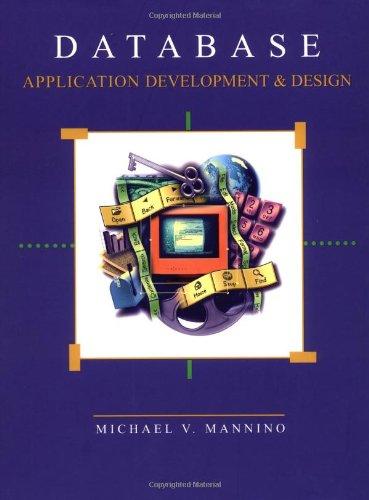Question
1. A function (blank) specifies how a function will be called later. It includes the return type, the name of the function, and a list
1. A function (blank) specifies how a function will be called later. It includes the return type, the name of the function, and a list of expected inputs called a (blank) parameter list. On the other hand, a function call specifies when and how to actually call a function. It gives the name of a function followed by a list of (blank) parameters that can take the form of values, variables, or expressions.
2. A (blank) is a data type that stores the address of a memory location. In C++, you can get the address of a variable using the reference operator, which is designated by the symbol (blank) . Conversely, you can get the value at a particular address using the dereference operator, designated by the symbol (blank).
3. An abstract data type consists of two parts: a set of possible (blank) (particular arrangements of bits that stand for something), and a set of (blank) that can be performed on them.
4. (Blank) is the name of an array that is allocated on the heap in main, while (blank) is the name of an array in main allocated automatically by the compiler on the stack.
(Blank) should be a vocab word.
Step by Step Solution
There are 3 Steps involved in it
Step: 1

Get Instant Access to Expert-Tailored Solutions
See step-by-step solutions with expert insights and AI powered tools for academic success
Step: 2

Step: 3

Ace Your Homework with AI
Get the answers you need in no time with our AI-driven, step-by-step assistance
Get Started


